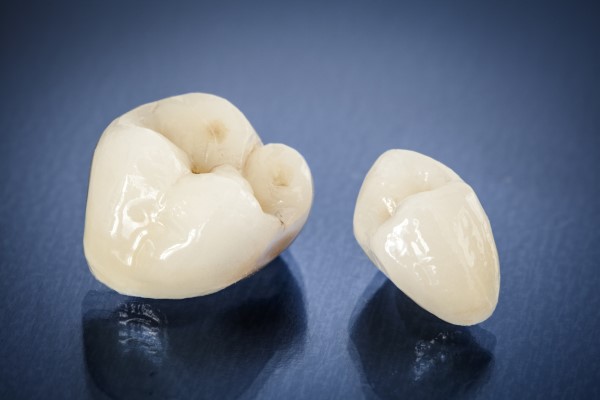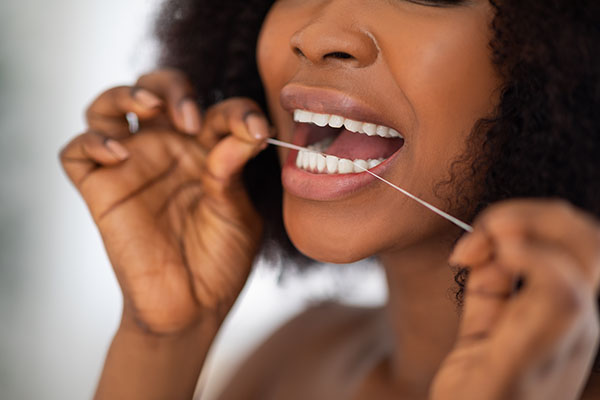3 Questions To Ask Before Getting Dental Crowns

If you have teeth that are severely damaged and decayed, dental crowns may be the only option available to preserve them. A crown consists of a cap that is placed over a prepared tooth and cemented permanently in place. The cap is shaped like a tooth to blend in with the others, providing strength, protection, and improved function.
What questions should you ask your dentist about dental crowns?
If you had never had crowns before, it is a good idea to ask questions of your dentist about them so you know what to expect.
1. What are crowns made of?
Crowns can be made from a range of materials. The earliest were made of metal. Chromium, nickel, palladium, and gold are still common materials for crowns today. Metal crowns offer advantages such as affordability and durability, but they stand out from the other teeth. Crowns can also be made of tooth-colored materials, such as ceramics that include porcelain and zirconia. Porcelain-fused-to-metal crowns offer the advantages of metal with a natural-looking, tooth-colored covering.
2. What is the process for placing crowns?
Placing a crown usually requires two appointments at the dentist's office. At the first visit, impressions of the teeth are taken to collect data that will be sent to the lab and used to create the crown. Impressions are taken of the tooth receiving the treatment plus the surrounding teeth, upper and lower. Physical impressions may be taken by biting down into soft, gel-like materials, or a digital scan of the teeth may be taken. Two impressions are required: One of the teeth before any treatment begins and another after the tooth has been prepared.
A numbing agent is used to prevent you from feeling anything during the procedure. The tooth is then prepared to receive the crown. This involves removing damaged material and shaping the remaining tooth so that the crown fits over it without crowding the other teeth in the mouth. Shaping sometimes means adding to the remaining tooth to build it up.
Once the tooth is prepared and the impressions are taken, a temporary crown is placed to protect the tooth until it the permanent crown is ready. It takes a week or two for the lab to craft and returns the new crown, after which you need another appointment to fit it and cement it in place.
3. What advantages and disadvantages are associated with crowns?
The success rate of treatment with dental crowns is very high. By restoring the teeth, they offer relief from severe pain and peace of mind that the tooth will not sustain any further damage. Depending on the material used, they look natural and last for decades.
However, following the procedure, you may experience a short period of discomfort. If you choose a metal crown, you may have an allergic reaction. The changes made to the tooth to prepare it for a crown are irreversible.
4. What is the proper way to care for dental crowns?
Once a crown is in place, there is not much that needs to change in terms of everyday dental care. Keep brushing at least twice a day to control plaque and bacterial buildup and floss daily to lower your risks for tooth decay and gum disease. See your dentist on a regular basis for professional cleanings and checkups.
You may want to make some dietary changes following the procedure, especially for the first few days after treatment. Foods that are extremely hot or cold can cause sensitivity issues and hard foods may be difficult and painful to chew. Once the crown has had a few days to set and any discomfort from the procedure subsides, you can resume a normal diet. However, dentists recommend limiting or avoiding foods that could potentially damage or dislodge a crown, such as:
- Sticky or chewy taffies
- Hard candies
- Hard, crunchy, or tough foods, such as whole apples and carrots, chips, and hard-crusted bread
If you do eat these types of foods, do so sparingly and try to chew on the opposite side of your crown to minimize pressure and potential damage. Cutting foods into more manageable pieces can also be beneficial.
Conclusion
Before having dental crowns placed, it is a good idea to find out what will happen. You can learn all about the procedure by asking the right questions to your dentist. They can help you understand what to expect and determine whether or not this is the right treatment approach for you.
Check out what others are saying about our dental services on Yelp: Dental Checkup in Turlock, CA.
Request an appointment here: https://www.kingdentistry.com or call King Dentistry at (209) 585-1474 for an appointment in our Turlock office.
Recent Posts
The idea of skipping routine dental check-up appointments may have crossed your mind. However, it would be best to read on to learn why this is not a good idea. These check-ups not only treat dental issues alone but also help prevent them from happening in the first place. Dental professionals generally recommend visiting the…
Are you due for a dental check-up? Has it been a while? You may not know what to expect if you have not had a dental check-up in a long time. Read on to discover what happens during a typical dental check-up. Oral health is important, not only for your mouth but for your overall…
Looking for information on preventive dentistry? Read on to learn more. A good preventive dentist can save you money on significant tooth problems, pain, and costly treatments in the future. All treatments or procedures that prevent tooth decay, tooth damage, and gum disease fall under preventive dentistry. Fortunately, when preventive dentistry is incorporated into daily…
Seeing a preventive dentist can help keep your teeth and gums healthy. Prevention is always better than extensive treatments, especially when it comes to dental health. This provider can perform treatments that can keep dental problems at bay. Here are some of the benefits that you can enjoy from visiting a preventive dentist for regular…


